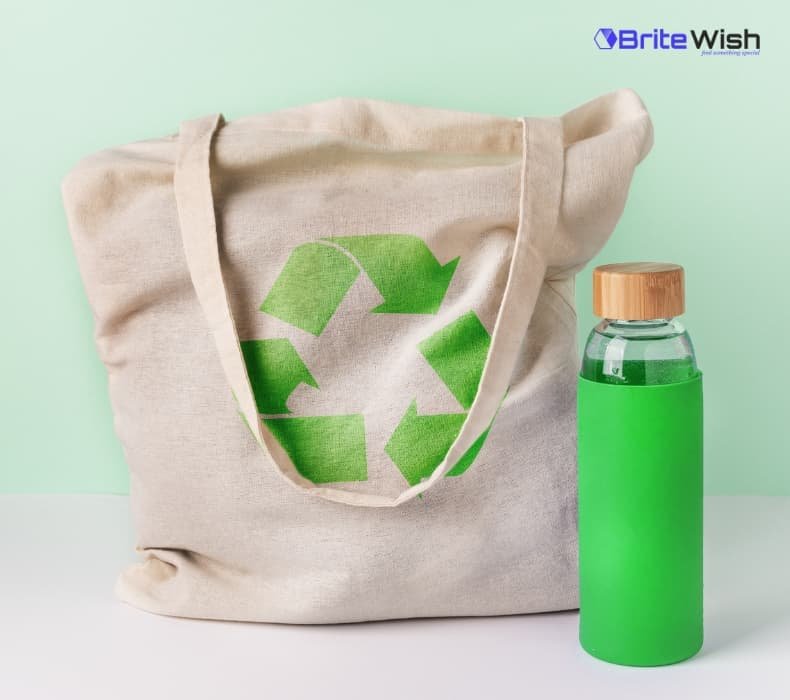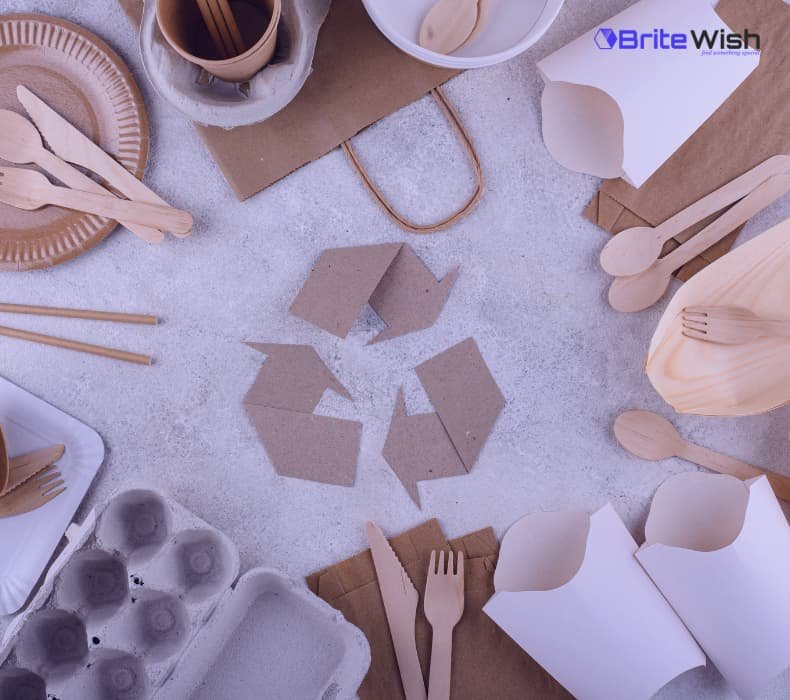Living a zero waste lifestyle might seem like a significant challenge, but it can be quite manageable with the right approach. By adopting a few simple habits, you can significantly reduce your waste and environmental impact. This blog will guide you through ten easy and effective ways to start your zero waste journey. Each step is designed to be practical and approachable, so you can integrate them into your daily life with ease.
1. Embrace Reusable Items
Switching to reusable items is one of the most impactful changes you can make. Here’s why and how you can start:
- Why It Matters: Reusable products help cut down on the single-use plastics that contribute to pollution and landfill waste. They are often more durable and cost-effective in the long run.
- How to Start:
- Water Bottles: Invest in a high-quality stainless steel or glass water bottle. This simple switch can save hundreds of plastic bottles from ending up in landfills each year.
- Shopping Bags: Opt for cloth or canvas bags instead of plastic ones. Keep a few in your car or by your front door so you never forget them.
- Coffee Cups: If you’re a coffee lover, using a reusable coffee cup or travel mug can reduce the need for disposable coffee cups and lids.

Benefits: Not only do reusable items reduce waste, but they can also save you money. Many coffee shops and stores offer discounts for customers who bring their own containers.
2. Reduce Plastic Usage
Plastic is a major environmental issue. Reducing plastic use can significantly lower your ecological footprint. Here’s how:
- Why It Matters: Plastics take hundreds of years to decompose and often end up polluting oceans and harming wildlife.
- How to Start:
- Choose Minimal Packaging: Opt for products with minimal or no plastic packaging. For example, buy fruits and vegetables without plastic wrapping.
- Bring Your Own Containers: When shopping in bulk, use your own jars or containers. Many stores offer bulk sections where you can fill your own containers with grains, nuts, and spices.

Benefits: Reducing plastic usage helps decrease pollution and reduces your exposure to potentially harmful chemicals found in plastic products.
3. Start Composting
Composting is a fantastic way to turn food scraps into valuable resources for your garden. Here’s how you can begin:
- Why It Matters: Composting reduces the amount of organic waste in landfills, where it would otherwise release methane, a potent greenhouse gas. It also enriches the soil, helping plants grow.
- How to Start:
- Create a Compost Bin: You can use a dedicated compost bin or even a DIY bin made from old pallets. Make sure it has good airflow to help the composting process.
- Add Kitchen Scraps: Collect fruit and vegetable peels, coffee grounds, and eggshells. Avoid adding meat, dairy, or oily foods to your compost.

Benefits: Composting reduces waste and creates nutrient-rich soil that can help your garden thrive, reducing the need for chemical fertilizers.
4. Opt for Second-Hand Goods
Buying second-hand goods is not only eco-friendly but also budget-friendly. Here’s how to incorporate second-hand shopping into your life:
- Why It Matters: Purchasing second-hand items reduces the demand for new products and minimizes waste. It also keeps perfectly good items out of landfills.
- How to Start:
- Thrift Stores: Shop at thrift stores or online marketplaces for clothing, furniture, and household goods. These stores often offer a wide range of items at lower prices.
- Repair and Upcycle: Before discarding broken or outdated items, see if they can be repaired or upcycled into something new. For example, old jars can be repurposed as storage containers.

Benefits: Buying second-hand not only reduces waste but also offers unique and often high-quality items at a fraction of the cost.
5. Make Your Own Cleaning Products
Homemade cleaning products are effective and eco-friendly. Here’s how you can create your own:
- Why It Matters: Many commercial cleaning products contain harsh chemicals that can be harmful to the environment and your health.
- How to Start:
- All-Purpose Cleaner: Mix 1 cup of vinegar, 1 cup of water, and a few drops of essential oil (like lemon or lavender) for a natural and effective cleaner.
- Laundry Detergent: Combine 1 cup of washing soda, 1 cup of baking soda, and a small amount of grated soap for a gentle and eco-friendly laundry detergent.
Benefits: Homemade cleaning products are often cheaper and less toxic than their commercial counterparts, making them better for both your health and the environment.
6. Minimize Food Waste
Reducing food waste helps conserve resources and prevents unnecessary trash. Here’s how you can minimize waste:
- Why It Matters: Food waste contributes to landfill overflow and releases methane, a harmful greenhouse gas.
- How to Start:
- Plan Meals: Create a weekly meal plan to avoid overbuying and ensure you use up all the ingredients you purchase.
- Store Food Properly: Use airtight containers to keep food fresh longer. Learn proper food storage techniques to extend the life of your produce.

Benefits: Reducing food waste helps save money and resources, and ensures that more of the food you buy gets used.
7. Choose Sustainable Personal Care Products
Switching to eco-friendly personal care products can reduce waste and exposure to harmful chemicals. Here’s how to make the change:
- Why It Matters: Many personal care products come in single-use plastic packaging and contain harmful ingredients that can be harmful to both you and the environment.
- How to Start:
- Bamboo Toothbrushes: Replace plastic toothbrushes with bamboo alternatives, which are biodegradable.
- Reusable Menstrual Products: Consider using menstrual cups or cloth pads, which are reusable and reduce waste compared to disposable products.
Benefits: Sustainable personal care products reduce waste and often contain fewer harmful chemicals, making them a healthier choice for you and the planet.
8. Practice Minimalism
Minimalism involves simplifying your life by owning fewer items, which naturally leads to less waste. Here’s how you can practice minimalism:
- Why It Matters: Fewer possessions mean less waste and a simpler, more organized life.
- How to Start:
- Declutter Regularly: Regularly review your belongings and donate or recycle items you no longer need. Aim to keep only items that serve a purpose or bring you joy.
- Buy Less: Before making a new purchase, consider whether you truly need the item. Embrace quality over quantity.
Benefits: Minimalism helps reduce waste, save money, and creates a more organized and less cluttered living space.
9. Support Zero Waste Brands
Supporting brands that focus on sustainability encourages more companies to adopt eco-friendly practices. Here’s how to choose and support these brands:
- Why It Matters: Supporting eco-conscious brands helps drive demand for sustainable products and practices, contributing to a larger environmental impact.
- How to Start:
- Look for Eco-Friendly Packaging: Choose products that use recyclable, compostable, or minimal packaging.
- Promote Ethical Practices: Support brands that practice fair labor policies and ethical sourcing.
Benefits: Supporting sustainable brands helps reduce environmental impact and encourages more businesses to adopt green practices.
10. Educate and Advocate
Spreading awareness about zero waste living can inspire others to make changes and join the movement. Here’s how to become an advocate:
- Why It Matters: Education and advocacy can amplify the impact of individual actions and help foster a culture of sustainability.
- How to Start:
- Share Your Journey: Document and share your zero waste efforts on social media or start a blog to inspire others.
- Join Local Groups: Connect with local zero waste communities or online forums to share tips, experiences, and support.
Benefits: Educating and advocating for zero waste living can lead to broader societal changes and increased awareness about environmental issues.
For more tips on living sustainably and achieving a zero waste lifestyle, visit our homepage at Brite Wish for a wealth of resources and guides.
For additional reading and inspiration, check out these high-quality blogs:
- Zero Waste Home: A Practical Guide to Reducing Waste
- The Minimalists: Simple Living for a Better Life
- Going Zero Waste: A Journey to a Greener Lifestyle
By incorporating these ten simple steps into your daily routine, you can make a significant impact on reducing waste and living a more sustainable life. Remember, every small action counts, and the journey to zero waste is a personal one that can be tailored to fit your lifestyle.

Embrace these changes at your own pace and celebrate each step towards a more sustainable future.















